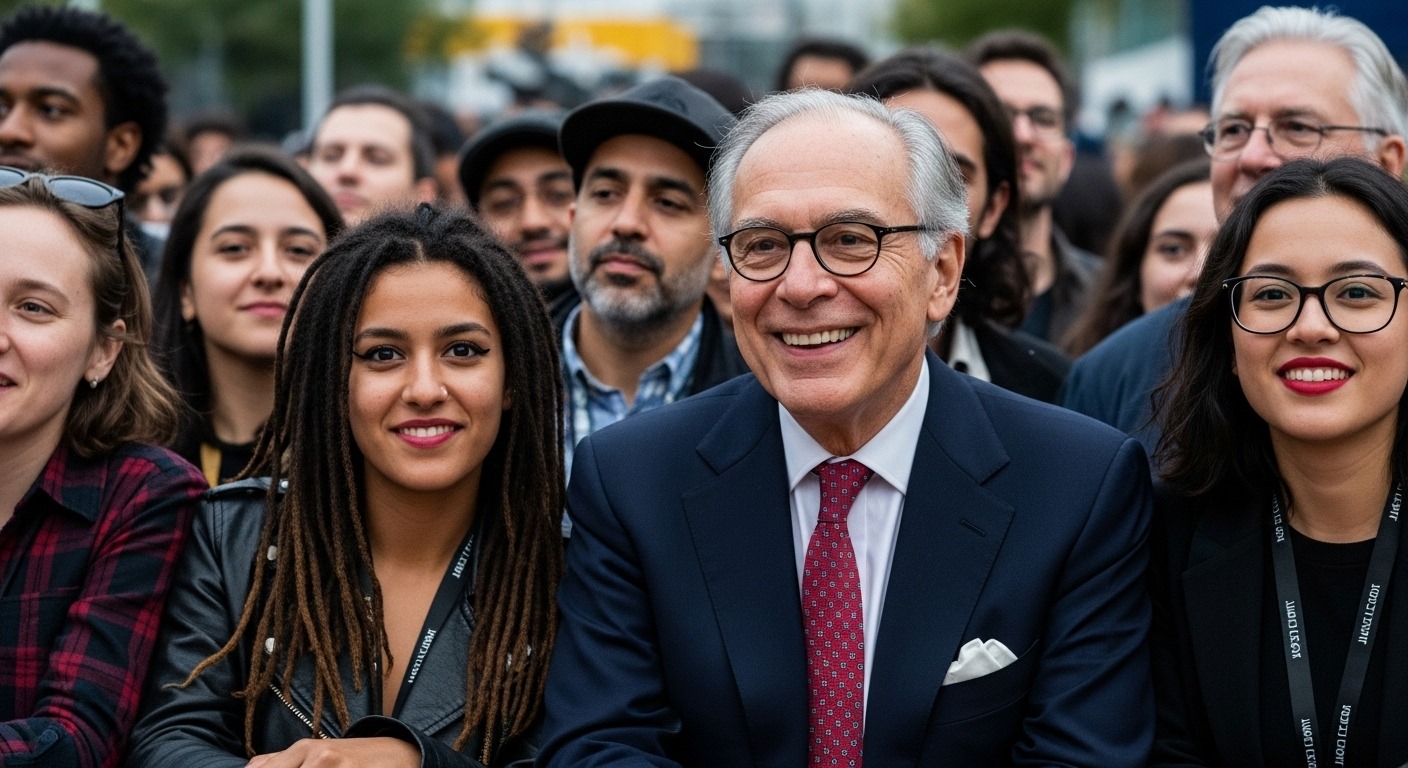The allure of a film festival is undeniable. It’s a vibrant ecosystem where artistic discovery meets industry networking, where passionate cinephiles gather, and where new stories are launched into the global conversation. While individual tickets offer a glimpse into this world, the true immersion—the full experience—often comes with a festival pass. But what exactly does a film festival pass cost, and more importantly, is it worth the investment?
This article aims to be the most comprehensive resource on film festival pass costs, diving deep into the economics, the varying tiers, and the tangible value they offer. We’ll go beyond mere price tags to help you understand what you’re truly paying for, how to choose the right pass for your festival goals, and how to maximize its benefits, ensuring you make the smartest financial decision for your cinematic journey.
What Do Film Festival Passes Typically Cost?
Film festival pass costs vary dramatically based on the festival’s prestige, duration, the level of access granted, and whether it’s an industry or public pass.
- General Public “Film” Passes: These typically range from $100 – $600 USD / €100 – €500 EUR for multi-film packages or unlimited public screening access for the full festival duration. Discounts are often available for early bird purchases, students, or seniors.
- All-Access / Premium Passes (General Public): Offering enhanced benefits like priority seating, access to select events, or exclusive lounges, these can cost anywhere from $500 – $2,000+ USD / €400 – €1,500+ EUR.
- Industry / Press / Market Badges: Designed for professionals seeking networking, market access, and specific industry events, these are generally the most expensive, ranging from $300 – $1,500+ USD / €250 – €1,200+ EUR, with top-tier market accreditations at major festivals potentially reaching €2,000+.
Note: These are general ranges. Always check the official festival website for the most current and precise pricing for their specific pass offerings.
Film Festival Pass Cost: Your Definitive Guide to Value and Access.
1. The Price of Immersion – Why Passes Matter.
For many, film festivals represent the pinnacle of cinematic appreciation. They are not just venues for screening films but vibrant cultural events that foster discovery, discussion, and connection. While buying individual tickets to a few select films is an option, a festival pass offers a deeper, more immersive experience.
It’s an investment in access, convenience, and the intangible magic of being at the heart of the festival. But with costs ranging from modest to significant, understanding the true value behind these passes is paramount.
2. Decoding Pass Types: Understanding What You’re Paying For.
Film festival passes are rarely one-size-fits-all. They are meticulously structured to cater to different types of attendees, each offering a distinct level of access and corresponding cost.
- A. General Public “Film” Passes (The Cinephile’s Choice):
- What they are: These passes are designed for the ardent film lover. They typically grant access to a certain number of film screenings (e.g., a “5-Film Pass,” “10-Film Pass”) or unlimited access to all public screenings throughout the festival.
- Cost Range: As indicated in our answer target, these generally fall within $100 – $600 USD / €100 – €500 EUR. For example, a “Cinephile Pass” at a mid-tier festival might be around $200-$300, while larger festivals may offer tiered “film packs” that equate to a similar range. Karlovy Vary, for instance, offers multi-day passes from CZK 420 (approx. €17) for 1 day to CZK 1990 (approx. €80) for the whole festival.

- Value Proposition:
- Cost Savings: If you plan to see more than 3-5 films, a pass almost always works out cheaper per film than buying individual tickets (which often range $12-$20+ per screening).
- Priority Access: Many passes offer an exclusive booking window before individual tickets go on public sale, or allow “priority” entry into venues, giving you a better chance to see popular or sold-out films.
-
- Convenience: No need to buy individual tickets constantly; your pass simplifies entry.
- Ideal For: Avid film buffs, local audiences, and those looking to maximize their film-watching experience.
B. Industry / Press / Market Badges (The Professional’s Gateway):
- What they are: These are specialized accreditations for film industry professionals (producers, directors, distributors, sales agents), press/media, and film market participants. They often come with specific eligibility criteria and an application process.
Cost Range: These are significantly higher due to the exclusive access they provide, typically ranging from $300 – $1,500+ USD / €250 – €1,200+ EUR. The European Film Market (EFM) at Berlinale, for example, offers “Market Badges” starting around €300 for early bird, going up to €500+ for late registration for industry access. Busan’s Festival Badges for industry figures are often complimentary or very low cost for invited guests but can involve a registration fee for others.
Value Proposition:
- Business & Networking: Access to industry-only screenings, panels, workshops, pitching sessions, market floors, and dedicated lounges where deals are made and connections forged. This is invaluable for career advancement.
Press Access: For journalists, critical for covering the festival, attending press conferences, and securing interviews.
-
- Exclusive Content: Often includes access to private online film libraries (for market badges) for pre-screening films.
- Priority & Convenience: Top-tier access to screenings, bypassing public queues.
- Ideal For: Filmmakers seeking distribution, producers looking for financing, sales agents, distributors, critics, and media professionals.
C. All-Access / Premium / VIP Passes (The Ultimate Experience):
- What they are: The pinnacle of festival access, designed for benefactors, patrons, or those seeking the most luxurious and comprehensive experience. These combine the best of film access with exclusive social events.
- Cost Range: These passes can range from $500 – $2,000+ USD / €400 – €1,500+ EUR, with some ultra-exclusive packages at top-tier festivals (like Cannes via third-party concierge services) potentially reaching tens of thousands for red-carpet premiere access and parties. Tribeca offers passes like the “Hudson Pass” for $1350 and “Z Pass Packages” for $5000-$25000.
- Value Proposition:
- Ultimate Access: Priority entry to all screenings, gala events, opening/closing ceremonies, and exclusive parties.
- Concierge Services: Often includes dedicated support, pre-booked seats for all desired films, and sometimes even transportation.
-
- Networking at the Highest Level: Opportunities to mingle with celebrities, top industry executives, and influential patrons.
- Ideal For: High-net-worth individuals, philanthropists, and those for whom the networking and social prestige are as important as the films.
D. Student / Senior / Local Passes & Virtual Passes:
- Discounted Options: Many festivals offer reduced rates for students (often requiring valid ID), seniors, or local residents. For example, Sundance offers a “Salt Lake City Young Adult Pass” for $300. Karlovy Vary offers discounted passes for students, seniors, and disability card holders.
Virtual/Hybrid Passes: The rise of online components has introduced virtual passes. These are generally much cheaper ($50-$150 USD) as they only grant online viewing access, without the in-person experience, and often geo-restricted. Tribeca offers a “Matinee Pass” for $100.

3. Factors Influencing Film Festival Pass Costs.
Why does a pass for one festival cost €80 and another $1500? Several key factors come into play:
- Festival Prestige & Scale: The larger and more renowned the festival (e.g., Cannes, Sundance, Berlinale, TIFF, Venice), the higher the demand and, consequently, the higher the pass costs. These festivals offer unparalleled exposure and networking opportunities.
Duration of the Festival: Longer festivals (e.g., 10+ days) naturally have higher operational costs, which can translate to higher pass prices, especially for full-festival passes.
Inclusions & Exclusivity: The more perks a pass offers (priority seating, access to industry events, exclusive lounges, parties, Q&As, merchandise discounts), the higher its price. Basic film-only passes are always cheaper than all-access ones.
Festival’s Funding Model: This is a crucial, often overlooked, factor.
- North America (USA, Canada): Many festivals heavily rely on ticket sales, pass sales, and corporate sponsorships. This often results in higher general public and industry pass prices to support operations.
Europe: Festivals in many European countries benefit significantly from government grants and public cultural funding. This allows them to keep pass and individual ticket prices lower, sometimes even offering free screenings or highly subsidized access, especially for local audiences and students. For instance, some major European festivals offer free short film submissions, which often correlates with more accessible public passes.
- Time of Purchase: Early bird discounts are standard across most festivals for passes. Buying as soon as passes go on sale can save you a significant percentage (e.g., 10-25%).
4. Is a Film Festival Pass Worth the Cost? Calculating the Value.
The “worth” of a pass isn’t just about its sticker price. It’s about maximizing the return on your investment based on your personal or professional goals.
- Cost-Per-Film Analysis:
- Calculate: (Pass Price) / (Number of Films You Plan to See).
- Compare this to the cost of individual tickets. For example, if a 10-film pass costs $200, your cost per film is $20. If individual tickets are $15, you’d need to see more than 13 films for the pass to be more cost-effective based purely on screenings. However, this is too simplistic.
- Beyond Screenings: The Intangible Value:
- Priority Access & Convenience: The ability to book coveted screenings early or skip long lines for popular films can be priceless, especially if your time is limited or you’re targeting specific premieres. This intangible benefit often outweighs the raw cost-per-film calculation.
- Networking Opportunities: For industry professionals, a higher-tier pass is a gateway to connections that can shape careers. The value of meeting a distributor, sales agent, or potential collaborator at a festival lounge cannot be quantified by a ticket price.
Festival Atmosphere & Immersion: The feeling of being part of a vibrant, global celebration of cinema, sharing the excitement with fellow enthusiasts, is a unique experience that a pass enhances.
Market Access: For industry, the film market (e.g., EFM at Berlinale, TIFF Industry) is where business happens. The pass cost is a direct investment in potential sales, acquisitions, or project development.
- When a Pass is NOT Worth It:
- If you only plan to see 1-3 films.
- If your schedule is extremely limited, preventing you from utilizing the pass for multiple screenings or events.
- If you’re only interested in very specific, niche films that are unlikely to sell out, making individual tickets a safer bet.

5. Where to Buy & How to Secure the Best Price.
- Official Festival Websites (Always): This is the definitive and most secure place to purchase passes. Look for the “Tickets & Passes,” “Accreditation,” or “Attend” sections.
- Early Bird Sales: This is your primary strategy for cost savings. Sign up for festival newsletters months in advance to be notified immediately when these discounted passes go on sale.
- Membership Programs: Many festivals offer annual memberships that, while costing a fee themselves, grant early access to pass sales and sometimes additional discounts. If you plan to attend the same festival annually, this can be a smart long-term investment.
- Accreditation (for Industry/Press): If you qualify as an industry professional or media, apply for accreditation rather than buying a general public pass. While often more expensive, it unlocks crucial business access. Be prepared to submit supporting documentation.
- Payment Plans: For higher-cost industry or all-access passes, some major festivals may offer installment payment plans, making the upfront cost more manageable.
6. Smart Planning Tips for Pass Holders.
Once you have your pass, maximize its value through smart planning:
- Pre-Plan Your Schedule: Even with a pass, you usually need to reserve seats for specific screenings. Be ready the moment the booking window opens for pass holders, especially for highly anticipated films. Have backup choices.
- Understand Booking Procedures: Learn how your specific pass works for reserving seats (e.g., online booking, physical queueing, specific time slots).
- Factor in Logistical Costs: Remember that the pass cost doesn’t include travel, accommodation, or food. For multi-venue festivals, consider transport time between screenings.
- Utilize All Perks: Don’t just focus on the films. Attend the panels, Q&As, industry mixers, or exclusive lounges included with your pass. These often provide the most significant intangible value.
- Wear Comfortable Shoes: You’ll be doing a lot of walking and standing in lines!
Conclusion: Your Gateway to a Fuller Festival Experience.
A film festival pass is more than just a ticket; it’s an investment in an unparalleled cinematic and professional experience. While the cost can vary widely, understanding the different pass types, the factors influencing their prices, and the true value they unlock beyond mere screenings is crucial.
By strategically choosing the pass that aligns with your goals and utilizing its benefits to the fullest, you’re not just buying access; you’re securing your gateway to discovery, networking, and a deeper immersion in the vibrant world of film. Choose wisely, plan smartly, and prepare for an unforgettable festival journey.

I am a highly experienced film and media person who has a great deal to offer to like-minded individuals. Currently working on several exciting projects, I am a film and media practitioner for over a decade. I have achieved a great deal of success in my professional career.





